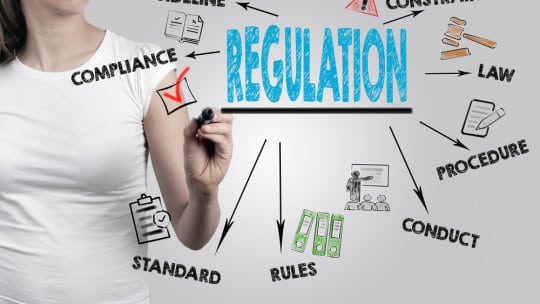
Editor’s Note: We ask PR leaders to tell us about people who’ve influenced their career, the best advice they’ve received and recent trends. This week we talk with Trista Morrison, VP, communications, N. America, Sobi.

Take a breath when you can. It was week two on my previous job at Ironwood Pharmaceuticals and I was chomping at the bit to get as much done as I possibly could and I was concerned I wasn’t adding enough value yet. The gentleman who hired me said, “You know, there will be so many days in this job when you are racing toward a deadline. So just take a breath when you can.” That’s a good reminder, especially in PR, which is so fast-paced and you never know what you’re going to face each day. When you’re starting a new job and you have a chance to take a breath because your plate hasn’t become 100% filled up with work and meetings yet, it’s a really great time to immerse yourself in the corporate narrative, to read everything the company has been saying about itself.
My mom was a PR maven in her day. She was an expert in executive communications and crisis communications and held high-level jobs at places like Texas Instruments and EDS back in the tech heyday. She also was a single mother. My father passed away from cancer when I was very young. I was very inspired to see her dedication to her field. She showed me you can be committed to your career and still be a great mom.
I feel people are starting to recognize the importance of storytelling and corporate narrative and that corporate communications is getting a seat at the table more often than not. The reason Harry Potter books are so awesome is that when you get the big reveal in Chapter 22, you say to yourself, “Of course, of course, I can’t believe I didn’t see it coming.” To have that reaction you have to leave the wand on the table in Chapter 3. So you can’t bring me into corporate strategy at Chapter 21 and tell me to write a press release for tomorrow about something. Communications needs to be involved in Chapter 3 so we can be laying the groundwork with our core audiences all along the way. So when that big news comes in Chapter 22 and we make that big announcement, people will say, “Oh, of course. It makes strategic sense with what they’ve been setting up with their strategy. I get it.” I feel there’s an increasing understanding of that, which is a great trend.
As a reporter, which I used to be, you’re protected by the truth. There’s only a limited amount of trouble you can get into if you’re telling the truth. What’s different in a pharmaceutical company, in communications, something can be true and still be off-label. Label is the term to describe the sheet that comes with your medicine. It’s essentially a summary of what it does, dosage, possible side effects, etc. It’s what the FDA has approved. That was hard for me to get my head around at first. You can have a statement that is true. The data support it. But if it’s not in the label, you can’t talk about it.
When I started in pharma more than 15 years ago, I thought, “Why do we need three lawyers to look at something? Can’t we just have one lawyer?” But I learned they are incredibly valuable. To be a successful communicator in pharmaceuticals you must work very closely with legal, regulatory, compliance and medical. It can be really hard, though, because as a communicator in pharmaceuticals you can get caught in the middle. Executives on one side want to communicate something and then on the other side you have regulatory, compliance and medical advisors who are telling you why you can’t say that thing. What I try to remember is that everyone is coming from a good place. Everyone is trying to protect the company’s reputation and has its best interests at heart. Nobody is limiting communications just to be mean, and on the other side executives think it’s important for the company’s well-being to communicate X, Y and Z. So the key is to remember we’re all working on the same team and try to figure out how to say something that will be compliant.
It makes me sad to think about pricing issues that have been brought about by a few bad actors in the pharmaceutical industry. The vast majority of people who work in it do so because they have huge hearts and they want to do work that has a major impact on people’s lives. I can’t imagine doing any other kind of work. The phone calls and letters you get from patients whose lives have been touched by your medicines, there’s just nothing like it.
Pricing is so complex. I understand why people in this industry don’t want to talk about it. I’d rather be talking with a reporter about a positive story about our company than discussing a thorny issue about somebody else’s prices. But if you expect reporters to do their job and deliver really good and fair reporting on such a complex issue, you have to educate them. You have to help them understand how the business works, even if it’s off the record. We’ve had good outcomes with that.
I’m not sure having been a reporter on a daily for six years makes me a better communicator. I certainly have a ton of respect for reporters. I love media relations; it’s one of my favorite parts of the job. But I have high standards. If you’re pitching a reporter you should know their coverage, know what they’re interested in and know what they’ve been writing about. And you should have a really good idea for a story that’s going to appeal to their audience. If you don’t feel like you have that, then I don’t think you need to be on the phone with them. I think it’s better to set your management team’s expectations accordingly rather than pitch material that’s not worthy of being pitched. I know it’s a rare group that loves media relations. But if you follow those rules and truly believe you have a story that’s worth a journalist’s time, you won’t dread picking up the phone to call a reporter.
Communications is so broad and has many sub-disciplines, such as crisis communications, internal communications, product PR etc. If you want to get to a place where you’re leading a communications team, you’ll need to understand all of them and how they fit together to support your business. I’m biased, but starting out an agency is a great way to get experience and exposure in a lot of areas.
CONTACT: [email protected]
